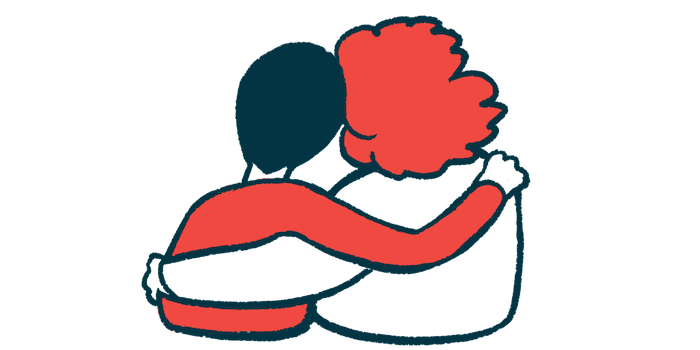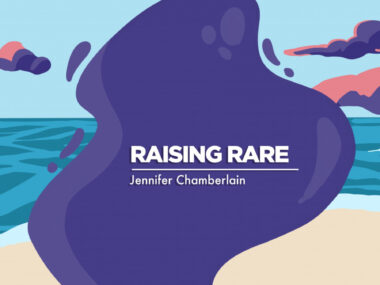Mothers of CF Children Need Support for Caregiver Burnout: Study
Lower family income and chronic disease in another child among added stressors
Written by |

Mothers who care for children with cystic fibrosis (CF) often experience depression, burnout, caregiver burden, and negative attitudes toward their children, a study suggests.
These caregiving struggles may increase with more hospital visits and hospitalizations, and having a lower family income, more children, and another child with a chronic disease.
The same challenges are faced, although to a lesser extent, by mothers with children who have primary ciliary dyskinesia (PCD), a rare genetic condition also characterized by mucus buildup and lung infections.
Screening the psychological status of mothers of children with CF and PCD, and providing them support may help reduce their anxiety about their children’s health and benefit their children’s care, researchers say.
The study, “Psychological status of mothers of children with cystic fibrosis and primary ciliary dyskinesia,” was published in the journal Pediatric Pulmonology.
CF is a genetic disease marked by the buildup of abnormally thick mucus in various organs, including the lungs, leading to symptoms such as chronic infections, persistent cough, and wheezing.
The impact of chronic diseases such as CF in childhood may extend to caregivers, affecting the daily routines of family life, which can lead to depression, life dissatisfaction, and sometimes even negative feelings for the child. The psychological status of the caregiver can also affect the child’s condition and long-term outcomes.
The aim of this study, by researchers in Turkey, was to evaluate depression, burnout, caregiver burden, and the attitudes of caregivers of children with CF or PCD — a rare genetic condition characterized by dysfunction of cilia, the finger-like projections that help clear mucus from the lungs. Like CF, symptoms include excess mucus, recurrent infections, chronic cough, and wheezing.
The PCD group was included because “studies on caregivers of children with PCD are very limited,” the researchers wrote.
Caregivers completed questionnaires about their children’s clinical features and provided information about themselves and their families. Data on factors that might affect the psychological status of the caregiver were also collected, including age, occupational status, physical or psychiatric condition and treatments, and any work or family problems related to the child’s hospitalization.
Psychological measurements included the Beck depression inventory, Maslach burnout inventory, Zarit caregiver burden scale (ZCBS), and the parental attitude research instrument.
Demographics of caregivers and their children
The study enrolled 131 children with CF (mean age of 6.5 years) and 39 children with PCD (mean age of 10.4 years) and their primary caregivers. The median age at diagnosis was 4 months in the CF group and 72 months (6 years) in those with PCD. In the six months before the study, CF children experienced significantly more hospital visits, hospitalizations, and longer hospital stays than PCD children.
All of the primary caregivers were mothers, and 57 (43.5%) of the CF group and 19 (48%) of the PCD group had a relative to help with the caregiving. Two CF mothers and one PCD mother were receiving treatment for depression.
In the CF group, scores for depression were higher (worse) in mothers who had another child with a chronic disease, low family income, and children with Pseudomonas aeruginosa, a common cause of CF lung infection.
Burnout, or extreme emotional exhaustion, was higher in both CF and PCD groups with low family incomes. Scores for caregiver burden were higher (worse) in mothers of CF children who experienced a sibling death.
In CF children, more hospital visits, hospitalizations, and longer stays in the previous six months were negatively correlated with worse lung function. More hospitalizations over the last six months were negatively associated with lower body weight in the PCD group.
Scores for depression in CF mothers were significantly related to burnout, caregiver burden, and over-protectiveness scores. Burnout scores correlated with caregiver burden, democratic attitude, and strictness scores, while caregiver burden scores were associated with overprotectiveness and strictness scores. Overprotectiveness scores correlated with a rejection of the homemaker role, and marital conflict and strictness scores.
“The time the mother spends with their children can reduce the time spent with other family members, which may lead to rejection of the role of homemaker, affecting family relationships and thus increasing conflict,” the researchers wrote. “Mothers who have strict rules can cause unrest in the home and marital problems due to the increased stress associated with their child’s illness and compliance with their treatment.”
In PCD mothers, depression scores correlated with burnout and caregiver burden scores.
“Fears and anxieties of mothers about the future of the child may lead to overprotective, stricter, and authoritarian behaviors,” the researchers wrote.
Caregiver burden correlated with burnout and marital conflict scores, while burnout scores were associated with marital conflict scores. The rejection of the homemaker role was associated with marital conflict and strictness scores, and marital conflict correlated with strictness scores.
“Although the psychological status of mothers of children with PCD was better than mothers of children with CF, their problems may increase with frequent hospitalizations, low family income, number of children, and chronic disease in another child,” the researchers concluded.
“Screening the psychological status of mothers of children with CF and PCD and providing them with psychological and social support may help reduce their anxiety about their children’s health and benefit the care of their children,” they added.







